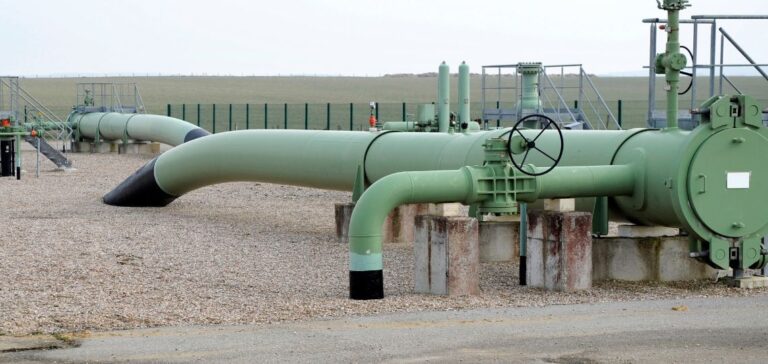The France of 2050 will consume less natural gas but will have to finance the same level of gas infrastructure, according to a study published Tuesday by the Commission de régulation de l’énergie (CRE), which suggests a shift in tariffs.
“Even in a very voluntarist scenario, with little gas, we still need gas networks overall,” observed CRE President Emmanuelle Wargon, presenting this report on the future of gas infrastructures. “This means that the cost of the networks will have to be mutualized differently,” she added.
By the end of 2023, CRE must renew the tariffs applicable to gas bills for the distribution, transport and storage part for the next four years. “The idea is to take a turn in the construction of tariffs and in the regulation that takes into account the fact that we will have, roughly, the same infrastructure needs with (…) a volume of terawatt hours consumed that will decline, “said the former minister.
In its report, the energy regulator examines three assumptions, all of which predict that future generations will consume much less gas in 2050 than they do today. It also assumes that in 2050 France will only use locally produced renewable (non-fossil) gas, thanks to methanization or other processes that are not yet widespread.
Despite this metamorphosis, the current network, consisting of 37,000 kilometers of transmission pipelines and more than 200,000 kilometers of distribution pipelines to customers, will remain indispensable, including for the supply of European neighbors. “The releasable assets are concentrated on the main transmission network” and “represent between 3 and 5% of the km of transmission pipelines as well as at least 7 compressor stations”, the study concludes in summary. The distribution network, meanwhile, will remain “necessary and essentially sized for the production of green gas” while “some assets could be abandoned in a proportion that should remain very limited”, it adds.
Today, France imports almost all of its needs: 450 TWh in 2022, 98% of which will be covered by fossil gas and used mainly to heat buildings. The study, which is part of the preparatory work for the Multiannual Energy Programming Act (PPE), is based on scenarios for decreasing existing gas consumption, ranging from one to two times. The network managers anticipate 393 TWh in 2030 and 320 TWh in 2050 (-29% compared to 2022).
The most frugal scenario of Ademe, the French agency for the environment and energy management, is based on 283 TWh in 2030 and 165 TWh in 2050, i.e. a consumption reduced by two-thirds compared to today.





















